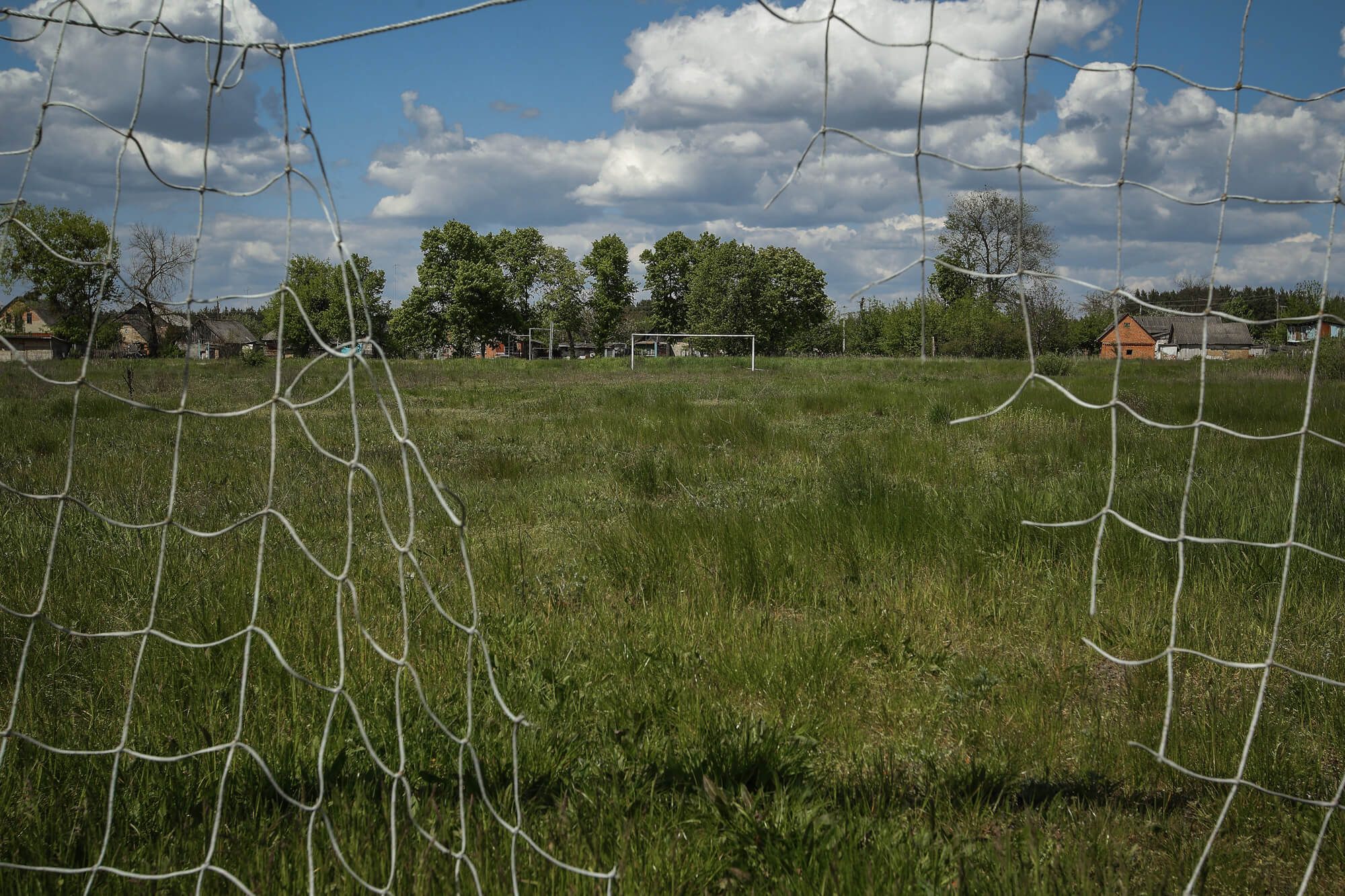
Don’t go outside — there are tanks out there
Zdvyzhivka village with 1000 inhabitants is located 10 km from the Hostomel airport. On the first night of the full-scale invasion, Natalia was doing her best to flee her home and get to safety. The walls of her house were shaking from explosions, and fighter jets were flying over her. It was easier to stay outside and look up at the sky — this way, she could be sure they were not flying right at her. In the direction of Hostomel, the sky glowed red.
The village residents had a group on Viber, the messaging app. As the invasion unfolded, the members of the group tried to think rationally despite their fear. Their priest, Vasyl, conjectured that the Russians would not go through their neighborhood: After all, if the Russians’ aim was to get to Kyiv, it would be pointless for them to go through Zdvyzhivka. He reasoned that it would not be easy for military vehicles to move from the highway onto village roads, which were not as well maintained.
Despite Father Vasyl’s theory, later that night the group chat received an awful update: «tanks on the main street. About 90 or 100 of them. They turned the headlights off».
For over a month, Zdvyzhivka was under Russian occupation. After Ukrainian forces liberated the village on March 31st,2022 the first thing the residents did was retrieve their tools from the looted sheds and started working to rid their homes of all traces of the Russians’ presence.
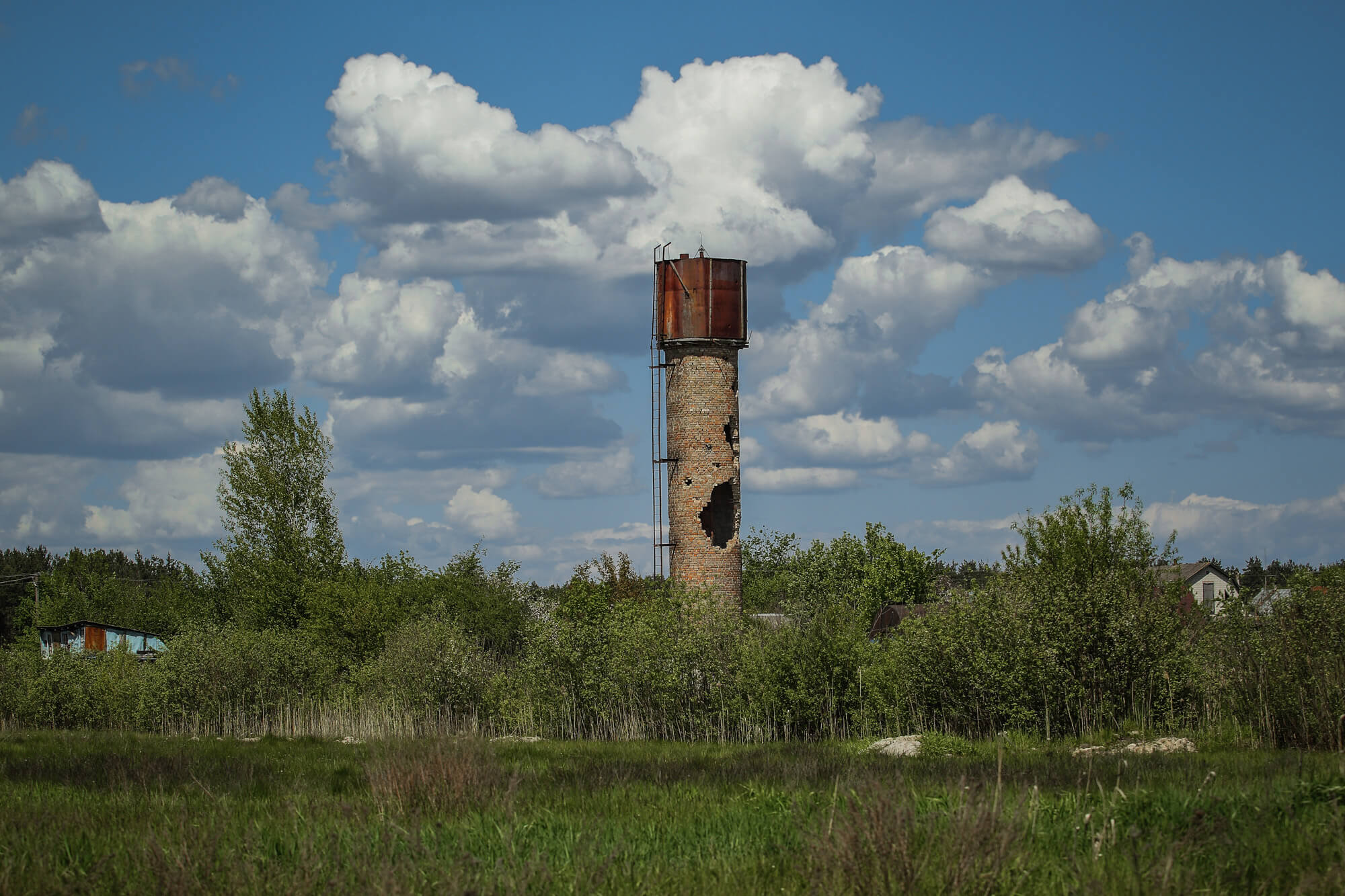
«We used to do whatever we wanted. And now we’re rebuilding what we created before». Natalia recalls how her fellow villagers reluctantly gathered up Russian military rations and other trash that was left behind when they retreated. Back then, she thought the village locals would have to rebuild from scratch.
Natalia explained that in the years leading up to 2022, the village infrastructure has been improving. The residents had fixed up a lakeside beach, organized hobby groups at the library, opened a youth space and a recreational area, and successfully applied for government grants to do more.
The Russian occupation changed everything. Nowadays, the main priority is to provide shelter for those who are left homeless. The second priority is to keep their children distracted so that the stress of war does not weigh onthem too heavily. There are no Russian combat jets anymore, but cruise missiles and strike drones still roar in the sky, posing a further risk to peoples’ homes and livelihoods.
When nothing happens
In Zdvyzhivka, they say there are three categories of residents: the old-timers whose houses are passed from generation to generation, those who evacuated from Chernobyl after the accident at the Nuclear Power Plant, and those who grew tired of big cities and decided to buy a house in the village for a bargain. The latter jokingly call themselves downshifters.
Nataliia Kniazeva and her husband Andrii belong to the third group. Both of them were city dwellers — she is from Kyiv, and he is from Dnipro. Nine years ago, they moved to Zdvyzhivka to be “closer to nature.” However, they never had a chance to celebrate their new life in the village, for the Euromaidan revolution coincided with the move. During the uprising, the couple traveled back and forth to the capital to protest with fellow activists. When Russia invaded in 2014, Andrii went to the frontlinesand survived the Battle of Debaltseve in the ranks of the 30th Brigade.
During the long year when her husband was away, Natalia, a non-profit worker, kept herself occupied with work. Later that year she also ended up in the eastern part of Ukraine, organizing two-day cycling events in Kramatorsk, Druzhkivka, Sloviansk, Lysychansk, and Dobropillia. she now distributes bicycles in these cities for other purposes — so that doctors and postal workers can discreetly navigate roads that are constantly under Russian shelling. The idea for this humanitarian project, called Bikes for Ukraine, emerged as soon as the Armed Forces liberated the regions of Chernihiv, Sumy, and Kyiv.
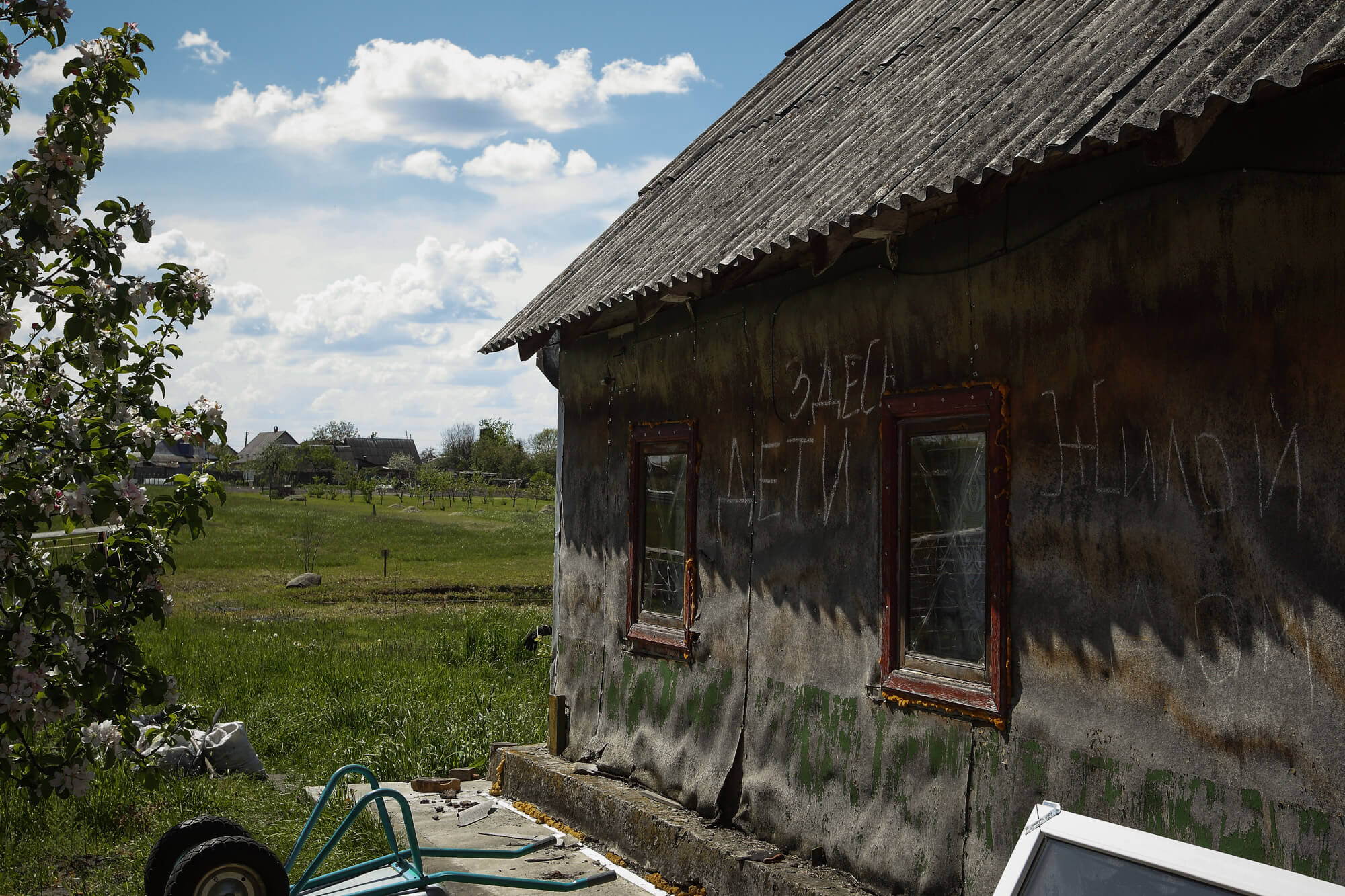
Our interviewee Natalia told us all about her work on this project. «Our organization is well-known. We received a request for bicycles. We don’t have a bike park, but we have a wide network of contacts. So we started reaching out to acquaintances and partners, particularly in Europe, to see if they could help. The first batch of 80 bicycles from Europe was purchased by a Ukrainian company. We distributed them to volunteer groups in the liberated regions.
we presented this campaign at the Congress of the European Cyclists’ Federation, and managed to expand a small initiative into a large international one», said Natalia, while scratching the ear of her black furry dog.
She is used to channeling her energy and experiences into things that are important to her as soon as she moved to Zdvyzhivka all those years ago, she was determined to find like-minded individuals in the village who were eager to see things change for the better.
«In the fall of 2015, my husband returned, and we finally started living here. We were strangers, and no one knew us. But I have been working in the public sector for fifteen years, and it’s hard for me when nothing is going on», — Natalia explains.
One of the first people we got to know here was Vitalii. He hitchhiked around the world, but in February 2022, he stayed home to provide the Security Service of Ukraine with photos of Russian military equipment located in the village and its outskirts . Vitaliy initially caught Natalia’s attention because of his commitment to the environment, as he frequently organized clean-ups and community events. Natalia’s friend and colleague from the civil sector, Sasha, lived on the same street. Later Vitalii introduced them to another couple, who owned a sauna by the lake in Zdvyzhivka.
Together, the group started thinking about what they could do to improve their town. They began organizing summer camps for local and Kyiv youth, as well as movie nights. Then they moved on to their biggest project yet — they decided to clean up the local lakeside beach.
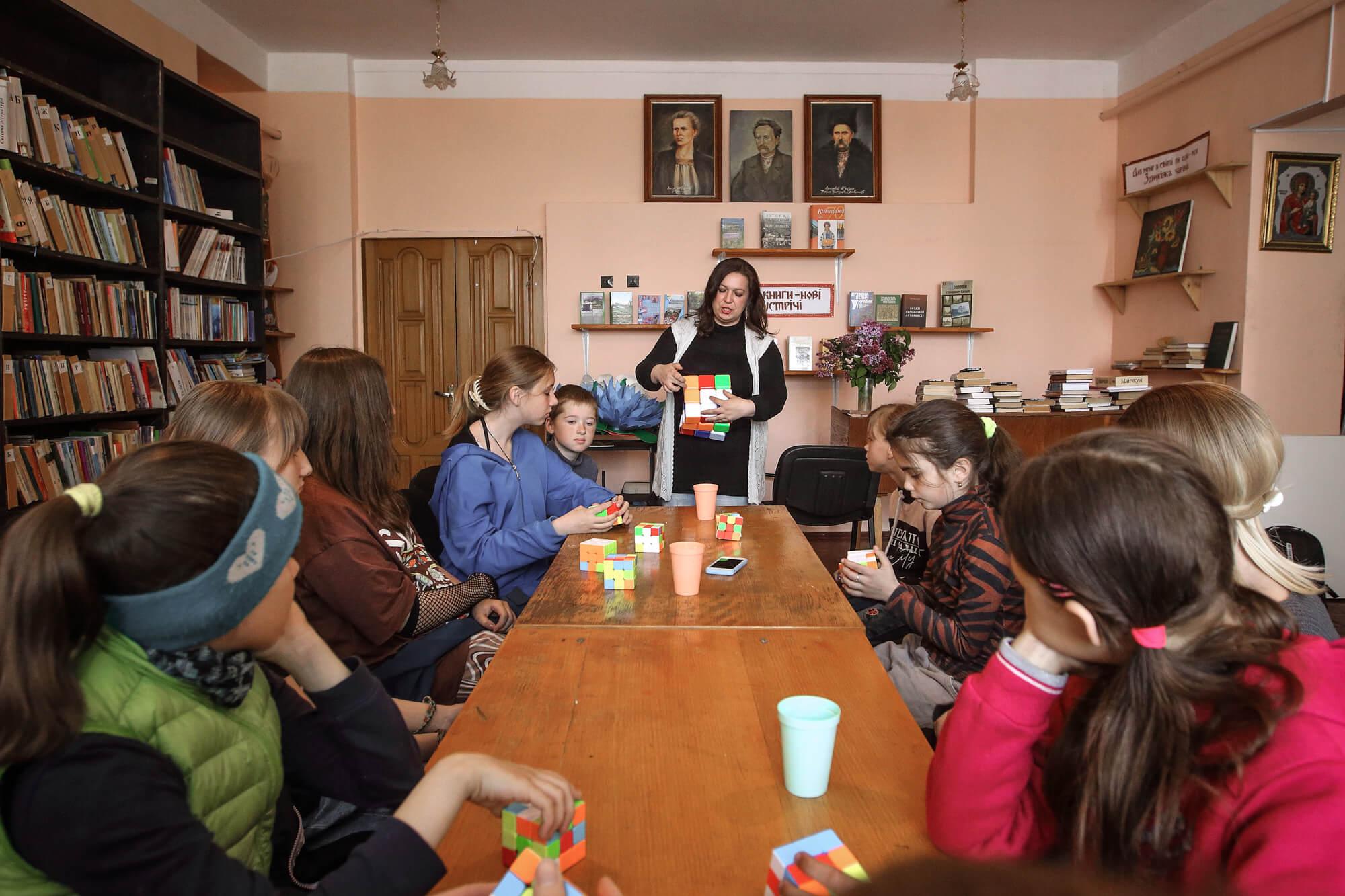
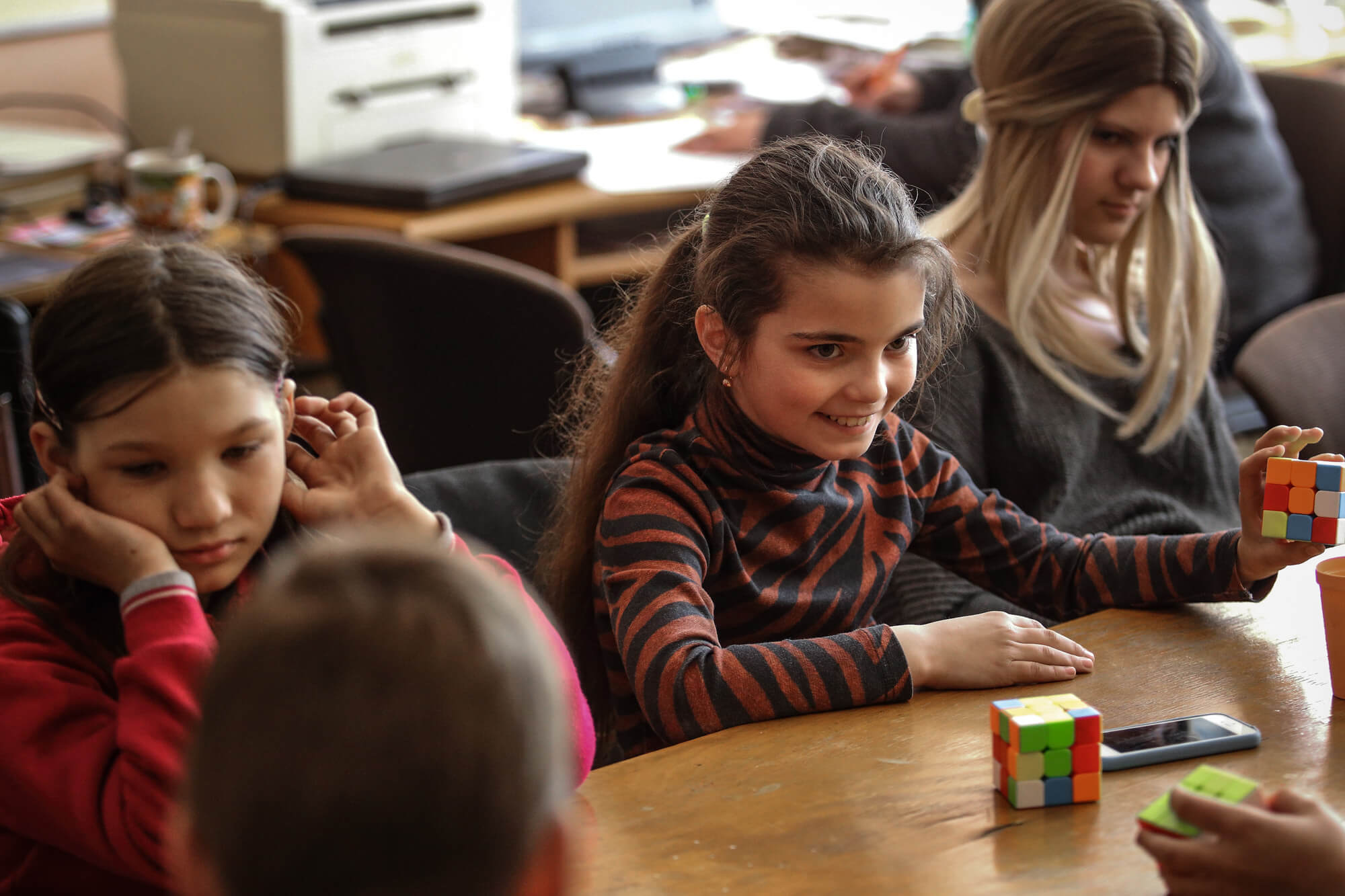
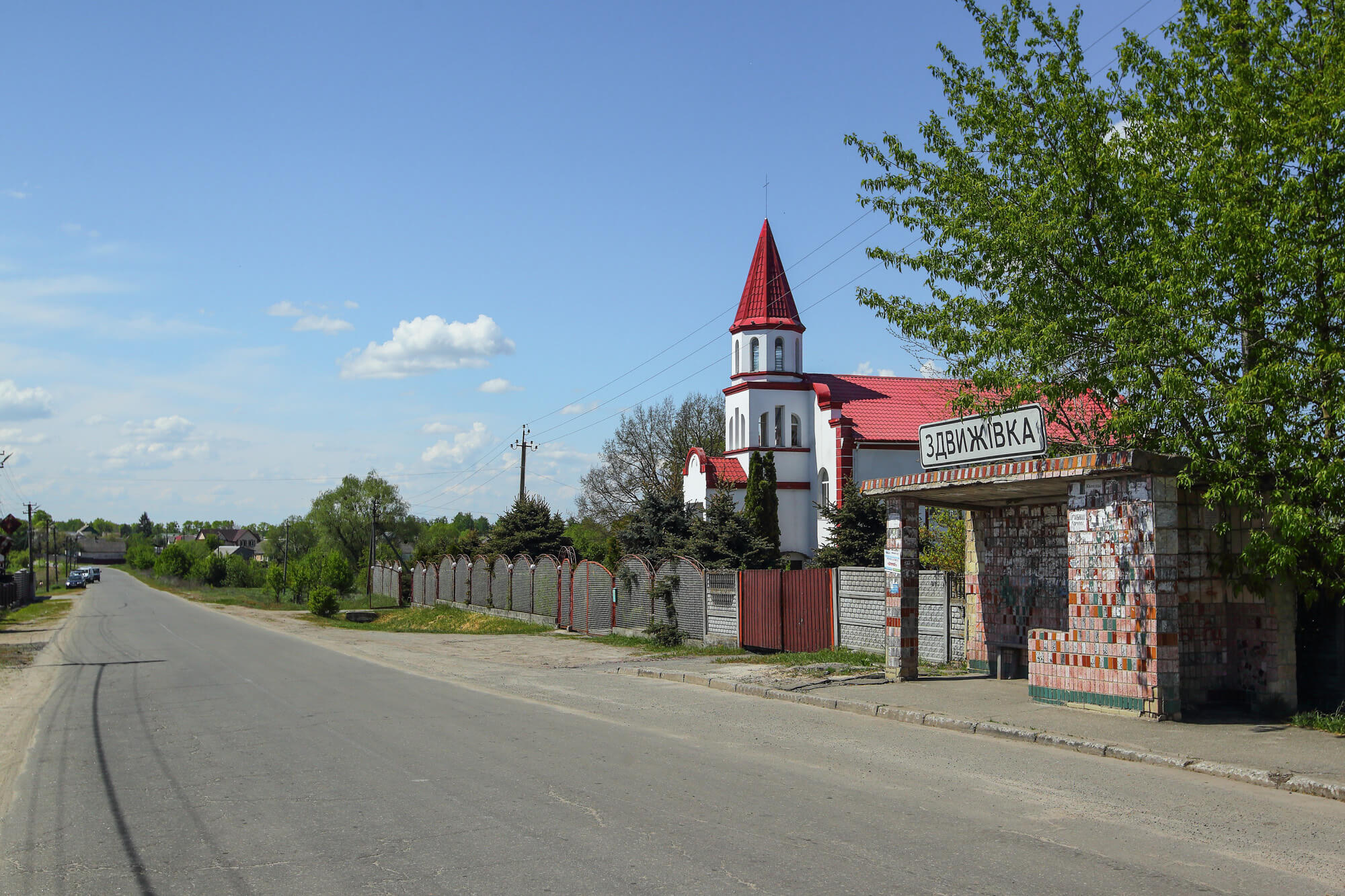
The shoreline of the small lake had been neglected for a years, littered with trash from the seasonal visitors. Natalia and her friends took on the task of restoring the beach with the help of European aid, and applied for the British Council grant. They got approved, although instead of the expected 200,000 hryvnias, which would have been over 4,000 pounds, they received only 15,000 — closer to 300 pounds. However, the momentum was already there — residents, local authorities, and local entrepreneurs, who wanted to see the project succeed, contributed equipment and additionalfunds to get the ball rolling.
Sprucing up the little beach was a boon for the village: the project itself gave people, even those who usually didn’t venture pasttheir own fences, somewhere to gather and something to do. Together, they leveled the area around the beach, built a volleyball court, and installed sun loungers, restrooms, and changing rooms.
With all of this well underway, the project was deemed a success. Next, the community activists received a second grant for outdoor games for children, which they started organizing in the park. This money was also to be used to create a recreational family area in the forest next to the lake.
The third grant was spent for creating a youth space.
«To put things into perspective: none of the applications submitted by Bucha, a city nearby, won the grants. But here, everyone got involved in collecting votes: volunteers went door-to-door, the village head called everyone and asked for their votes. There was even a “race” with a neighboring village: we nervously watched the countdown, the difference between us was only a few votes. When we finally won, the administration provided a space for the youth area, and we opened in January 2022. We did a modern renovation. We started with a volunteer kitchen, where for four weeks we taught young people how to plan and implement their projects», — Natalia fondly recalls.
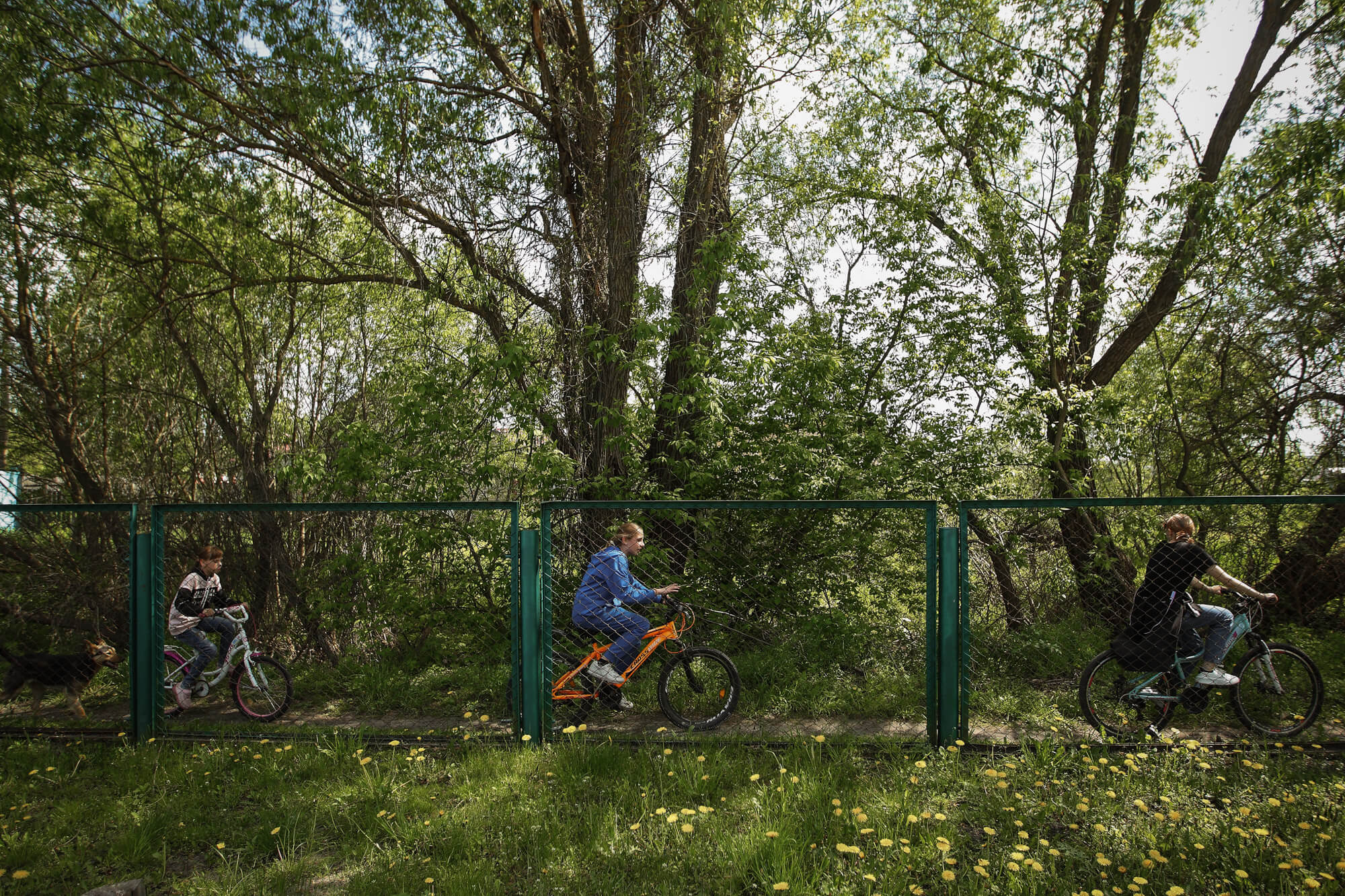
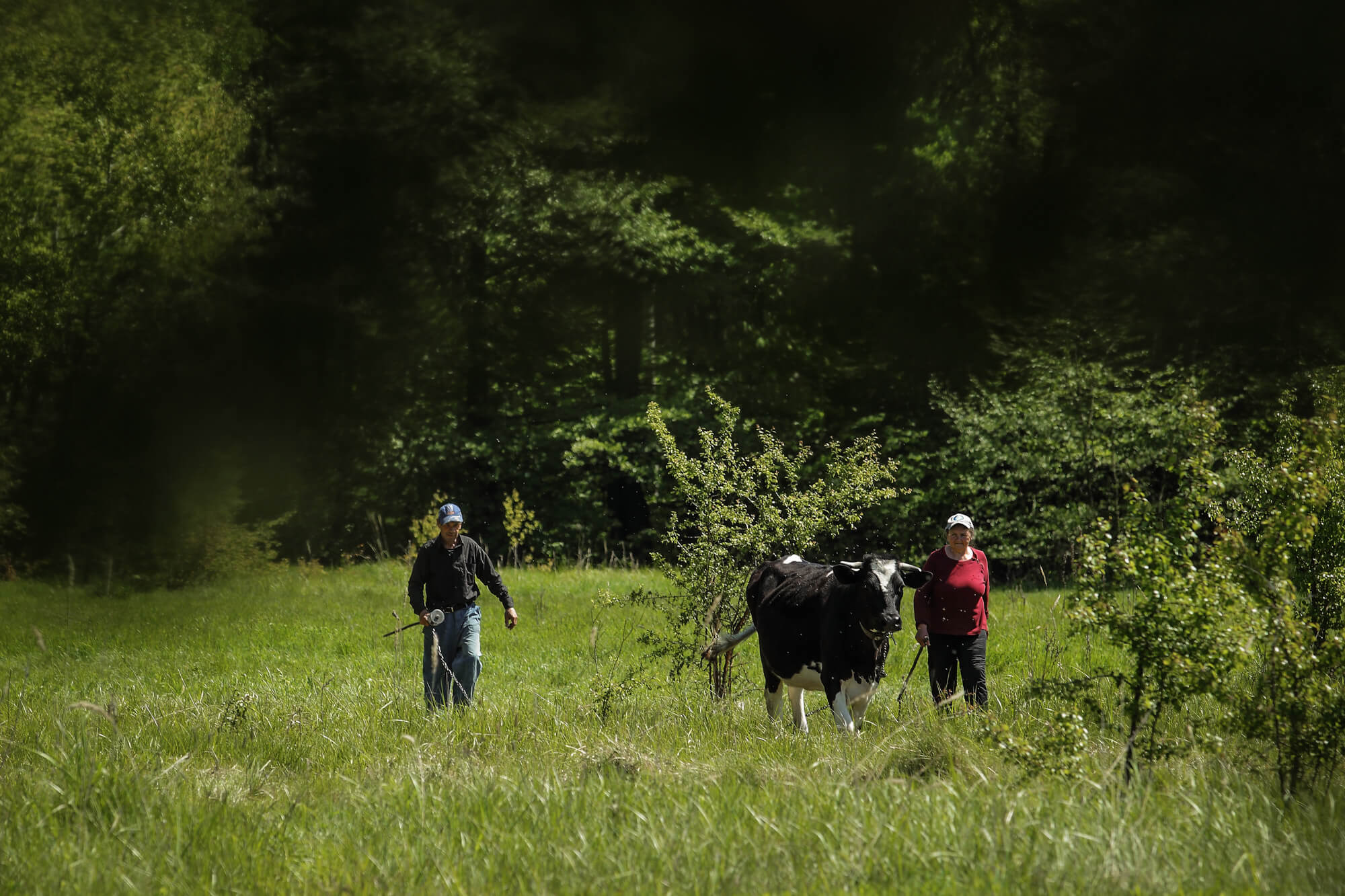
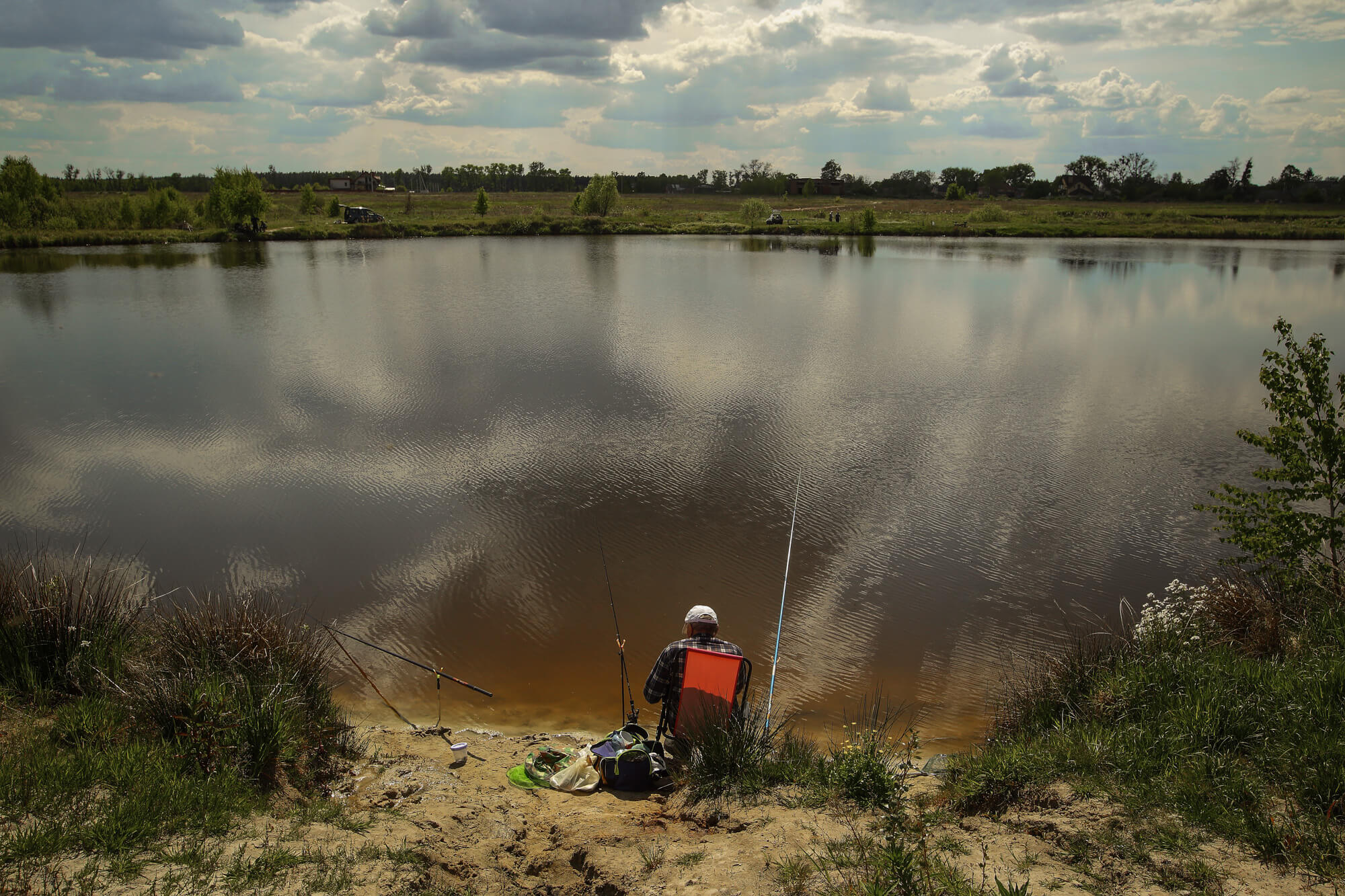
Natalia’s dream was coming true: together with equally inspired friends, she planned recurringactivities for the space so that young people could learn new things and engage in meaningful activities. They wanted to create two new jobs — a youth worker and a project manager. Butthey didn’t have enough time.
Fortunately, the space survived the Russian occupation in 2022. However, Russians looted the youth center. «It’s such a shame about our cool new wooden games — they probably used it as firewood».
the family recreation zone funded with the second grant, got ruined as Russian soldiers dug their trenches there. At the time, Natalia and her colleagues had started setting up a bonfire zone where families would have been able to grill food and picnic.
The Administrative Service Center (ASC) didn’t survive either — aggressors resided in the building and trashed it. Now the administrative activities have been relocated. Zdvyzhivka has returned to its previous state, where only things that ensure the village’s survival function steadily.
Stench
Father Vasyl Bentsa and his wife Anna, who moved here from the western part of the country and has since yearned for the Transcarpathian nature, have two children, aged five and ten. Vasyl refused to leave Zdvyzhivka, even when Russian tanks were passing through the central street, because he had work to do: confessions, prayers, and memorial services. Anna did not want to leave without her husband, and the children could not be without Anna. «I won’t leave», “I won’t go without you”», — such conversations took place during the first two weeks of the occupation.
«It was a Parental Memorial Saturday. My husband and I served the memorial service together. I don’t remember anything else. Just the bean soup: Vasyl walked around the house, I served the children food and monitored our local chat. Then there was a message about tanks — and we went to our neighbors. The soup remained on the table», — Anna spoke emotionally, as if reliving those events again.
«We stepped into the darkness, the four of us, heading to our neighbors, about 10-15 minutes away. It was so terrifying, I probably wouldn’t have done it again. We stopped near the lake…», — she recalls.
Next came the dreadful roar and the stench of diesel fuel from the Russian machinery.
«Everyone thought they were lost. I was really hoping that in the morning they would be gone», — she says.
But they were still there. From the neighbor’s window, Anna watched every day as the strangers roamed their streets. They entered empty houses and made themselves at home, clumsily adapting to their new surroundings. In Anna’s hiding place, there were four adults and five children. Until the very end, they hoped they would be skipped . But then there was a knock on their window. They were asked to let a car into their yard. Two armed individuals entered the house.
«We asked if we could leave. And we went into the basement. And they entered the house. It was incomprehensible to me — they saw the children», — Anna says, both anxious and genuinely surprised.
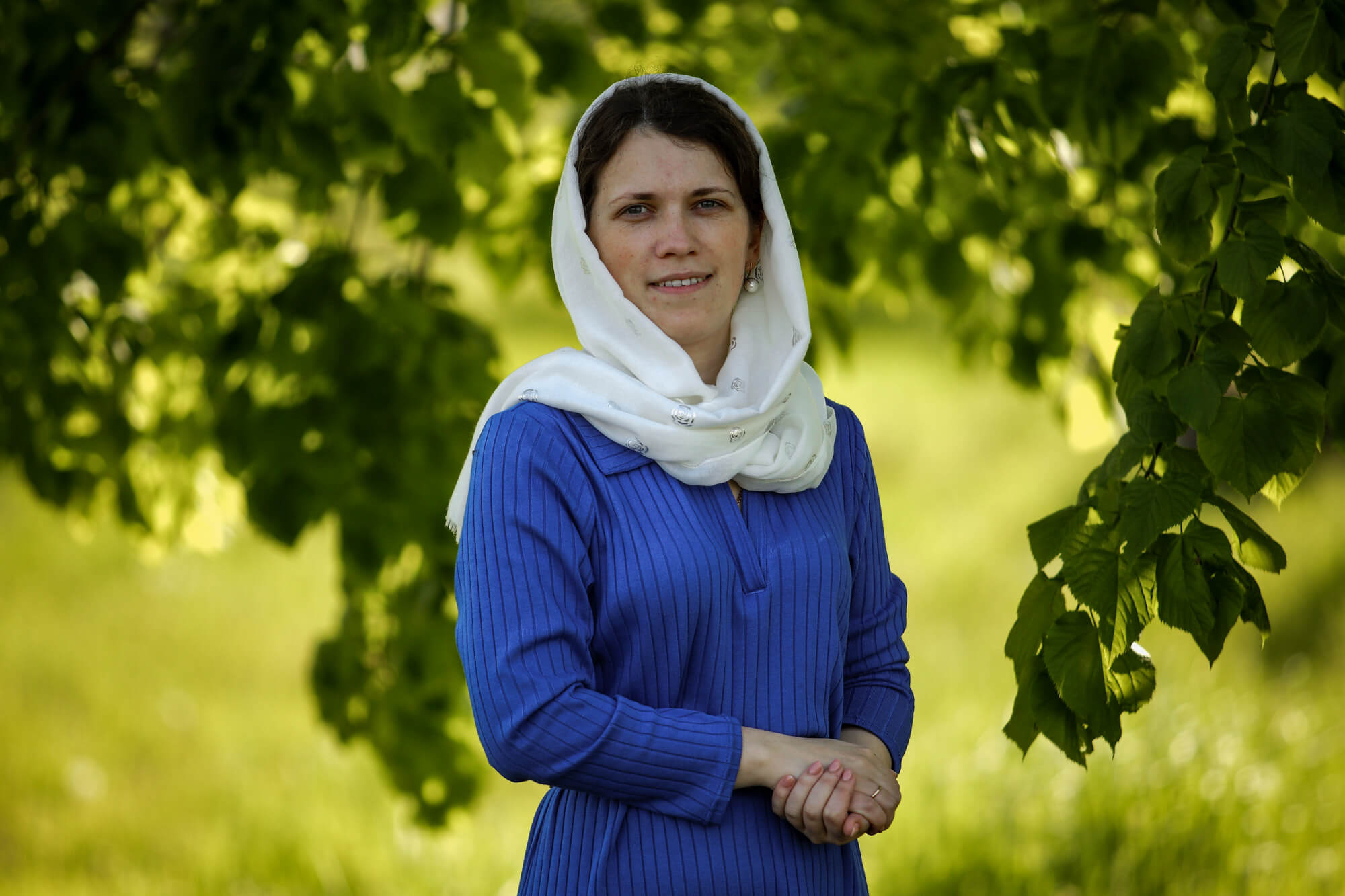
From other fragments of her memories: there was intense shelling. Our forces were targeting specific targets, and the Russians got scared. Helicopters were flying overhead — «we even saw the pilots». Presumably, they were evacuating their wounded. The medical unit was set up in the Baptist church. The equipment was placed at the ostrich farm.
«We stayed in the basement for two days and two nights. The ceiling was leaking due to dampness, I was coughing, and my husband had a fever. I cried endlessly. The children were crying too», — Anna says.
In two weeks, on March 12th, Anna decided to leave with her children.
«It was risky and terrifying. We were told that the last convoy was shot at. We drove past Russian checkpoints, fearing that they would open fire. The next day, many cars were shot at. Among those people was an elderly lady from our village — she used to sing in a folk choir . Later, they killed the ATO veterans who were crossing the forest — they got captured and tortured. We know their families well., someone passed through the forest and noticed their buried bodies», — she recalls.
Anna’s house, like many others, was looted. Among all the items the Russians took from her cellar, she regrets the birch juice the most — «I made a lot of it and didn’t even taste it».
When Natalia returned to liberated Zdvyzhivka from Kyiv, the first thing she saw was confused ostriches wandering through the dug-up streets. Natalia’s own house had to be extensively cleaned from the presence of the Russians. At first, they were afraid to enter and could only see the broken walls, shattered doors, and a littered yard. They cautiously made their way through the yard accompanied by military personnel and emergency services. When they entered the house, Andrii carefully opened the drawers with a rope to avoid triggering any mines. The Russians had stolen all their clothing, not even leaving a pair of socks from her husband’s belongings. But what hurt the most was the loss of his military awards, which had also disappeared.
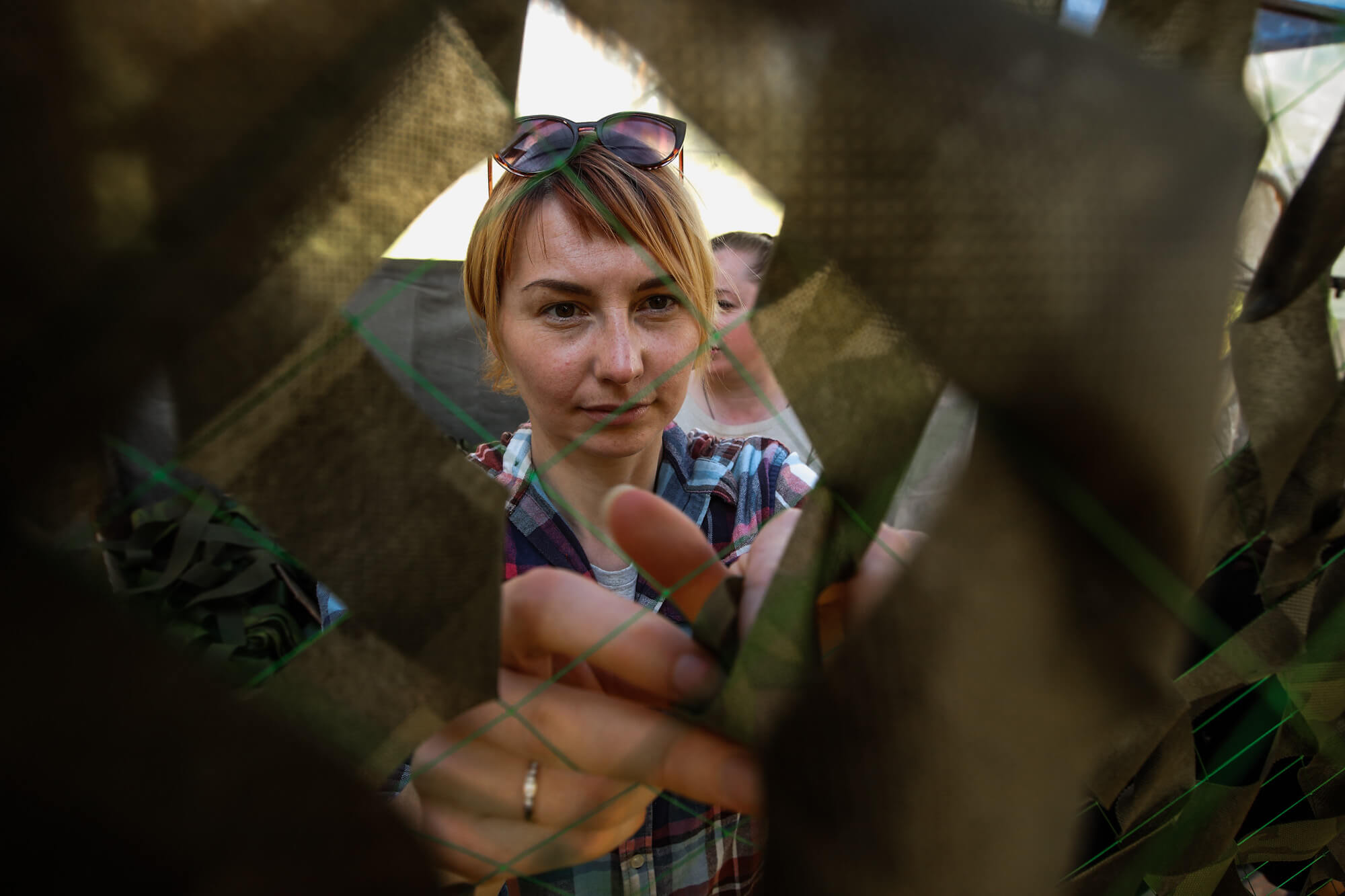
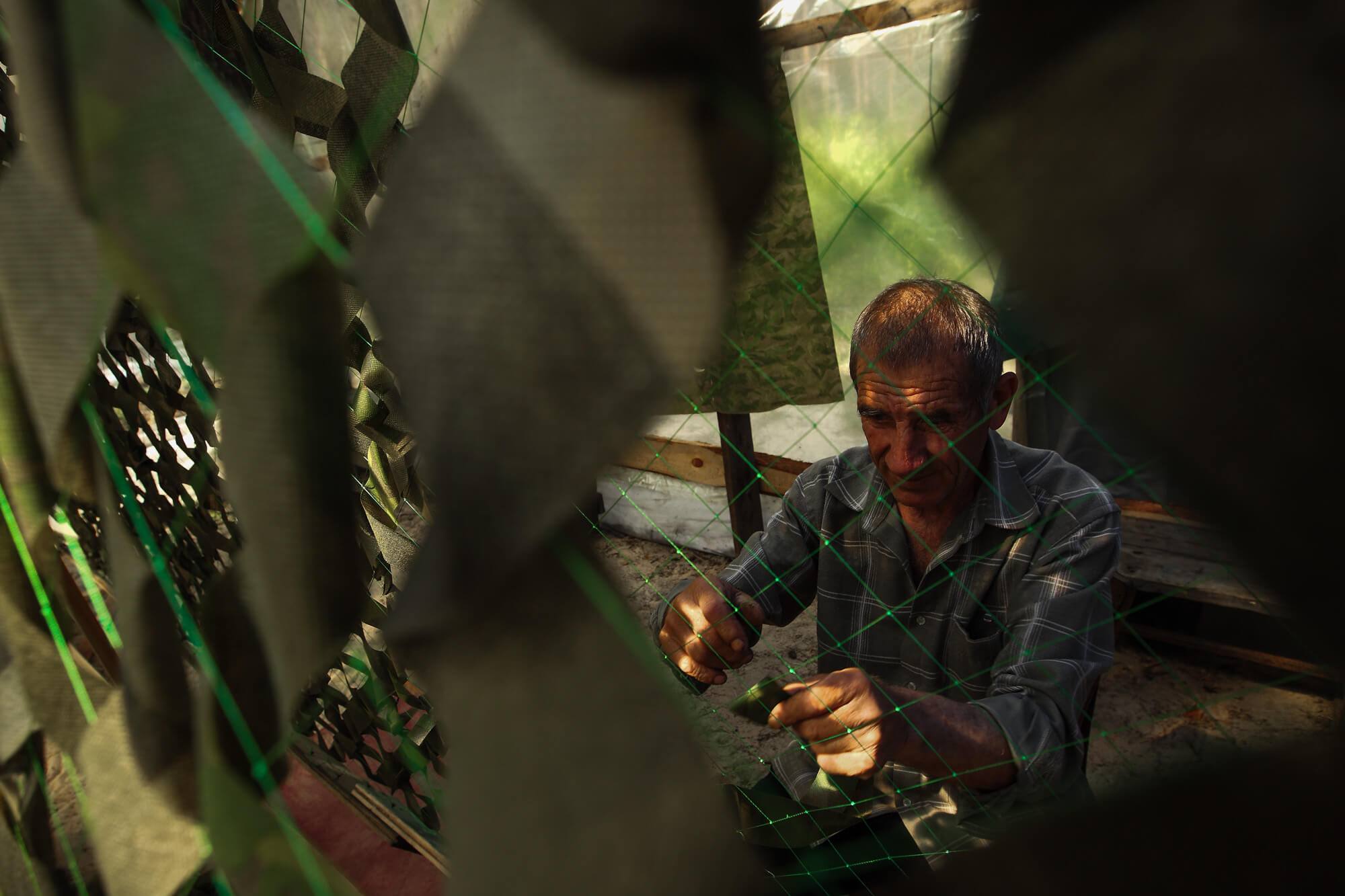
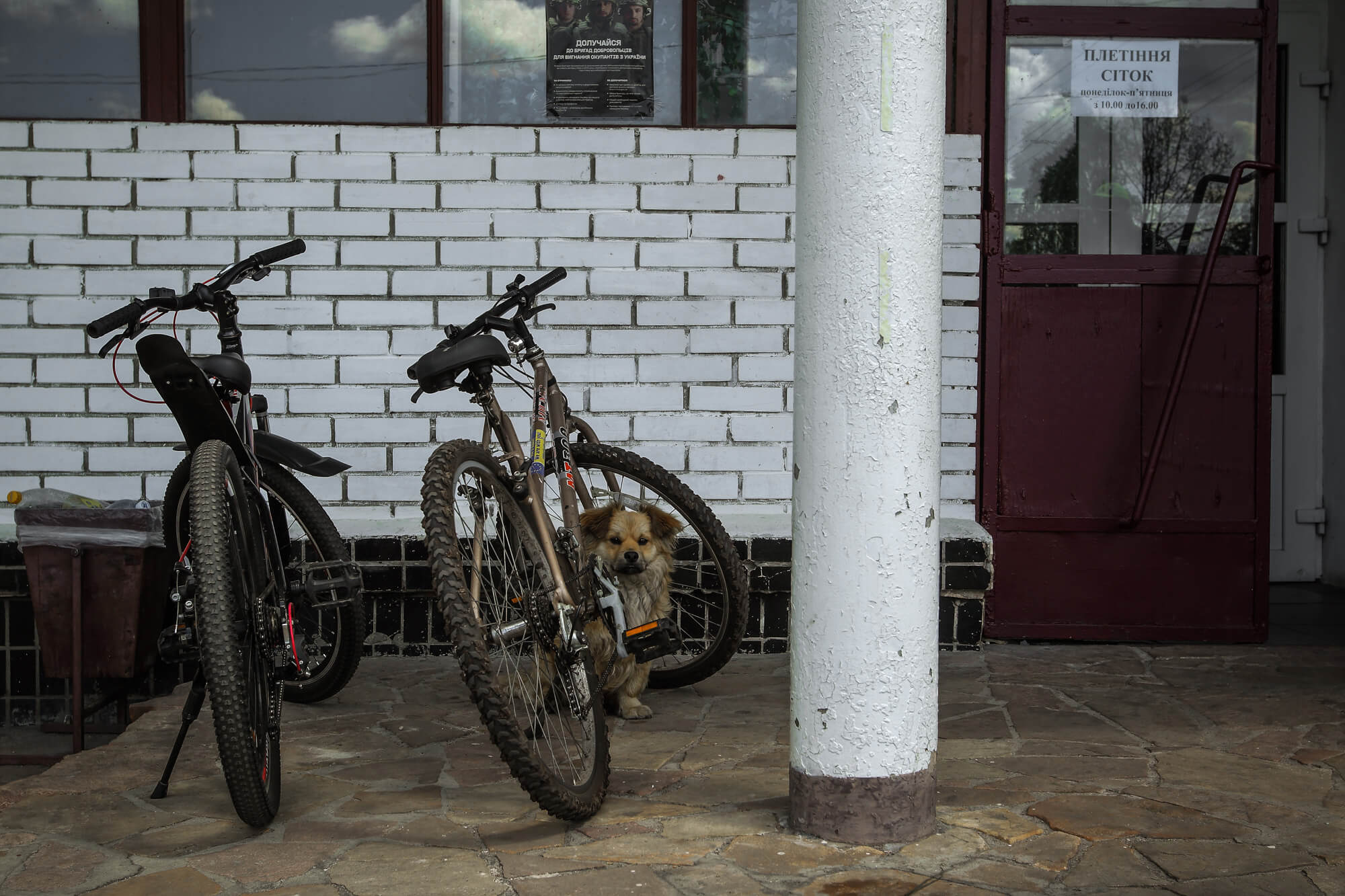
«Our yard turned into a so-called quest to ‘piece together a Russian soldier’: a jacket here, boots there, trousers somewhere else. Parts of uniforms, shells from projectiles, a grenade fuse (I was scared — if there’s a fuse, there must be a grenade somewhere). Our dog once brought something charred, but we didn’t bother to investigate what it was. But the most disgusting thing was finding my underwear hanging from the chandelier. My husband burned aroma sticks in the house for a month to get rid of that ‘Russian scent.’ But gradually, the feeling of home returned», — Natalia shares.
Out of the approximately 1,100 people officially registered in Zdvyzhivka, only about 300 managed to leave during the occupation. Those who remained did their best to stick together. In one house, 32 people crowded together as neighbors gathered to quell their fear.
«They say there were six thousand Russians, but we think there were many more. All the surrounding forests were dug up. When the berries started to ripen, no one paid attention to the mines. We had a pile of stolen equipment: three fire trucks, a piece of a KamAZ truck, a tanker brought from somewhere… The chat was flooded with messages with photos: ‘Whose is this?’ An acquaintance of mine found her home looking like an appliance store : microwave ovens, washing machines… The house was full of goods stolen by the Russians. They were probably planning to take them away but didn’t have time. On the wall of the kindergarten, there was a sign that said, ‘Forgive us,’ and inside, there was something like ‘Putin is your president’», — Anna recalls.
By summer, Zdvyzhivka had somewhat recovered from the ordeal. Volunteer hubs were set up where humanitarian aid was distributed to the people. The Youth Council organized training sessions on first aid and mine safety. Volunteers, doctors, and psychologists came to help. Natalia and her fellow villagers began to think about how to helpthose who had lost their homes.
Starting from scratch
Russian shells destroyed around 80 homes in Zdvyzhivka.
«One house burned down completely. Only two walls remained. An elderly lady lived there, and she moved in with her neighbors during the occupation. It’s so horrifying to see your house burning and not be able to do anything about it. Right now, the lady is in a modular town in Bucha and she really wants to return», — Natalia shares.
Another house, burned from the inside, stands in the center of Zdvyzhivka. Its owner, Serhii Savin, says that the house was shot at from an armored vehicle. They were lucky: at that moment, he and his wife Svitlana had moved to his mother-in-law’s place, which is located a bit further away, beyond the forest.
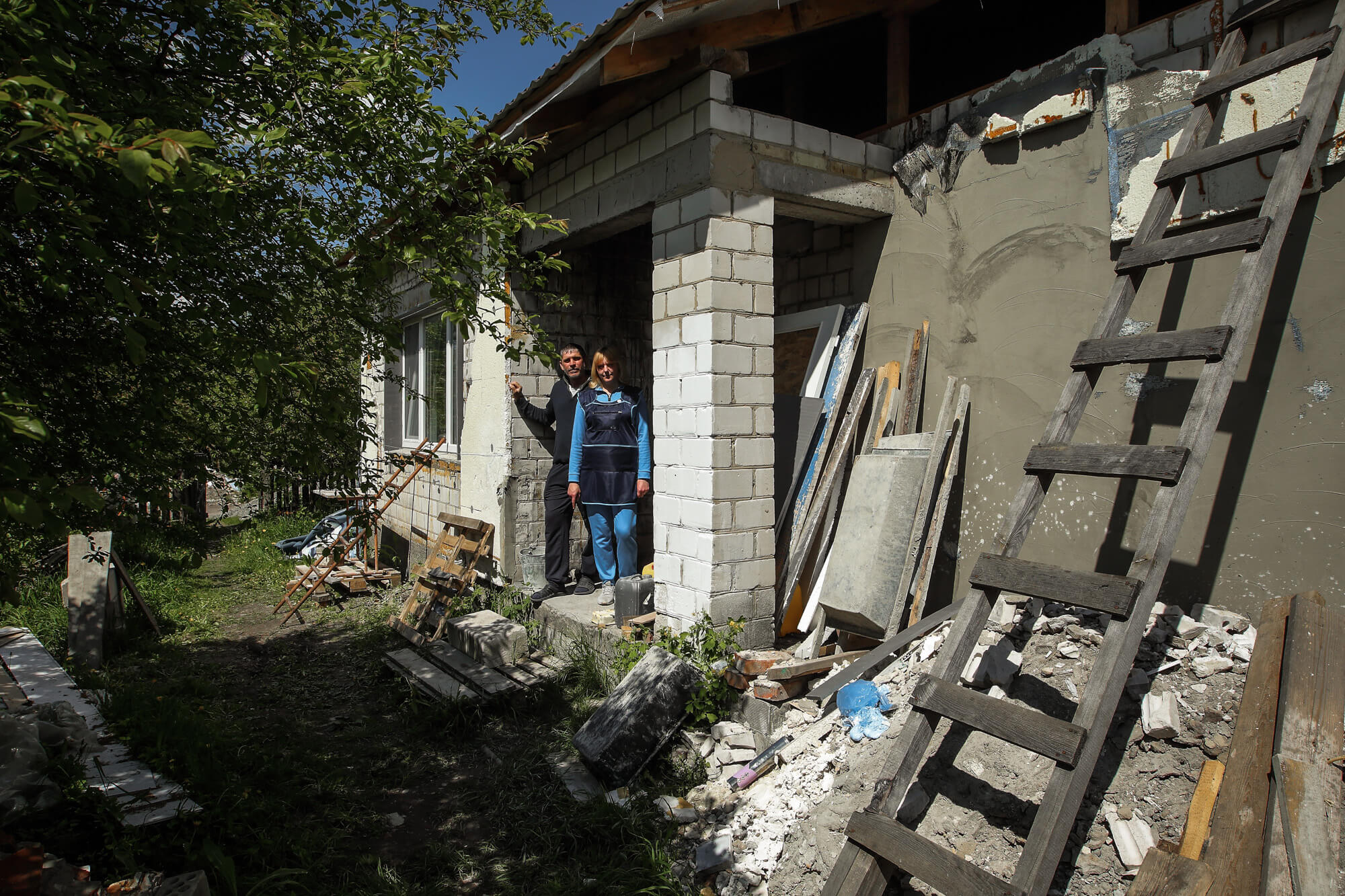
After the shelling, the Russians took out the canned food from the damaged house. Even when everything was destroyed, they broke down the doors. They even blamed the destruction on the owners who allegedly failed to indicate that people were living there by writing on the fence. Later, they even claimed that the shooting came from Kyiv.
The couple did not have money for rebuilding their home (the husband did seasonal work maintaining boilers, while the wife worked in a local store). The commission assessing the extent of the damage advised demolishing the house. However, the owners wanted their son Sergii Jr., who is currently in the military, to return to his home. So they approached Nataliia to inquire about any state programs for reconstruction.
Natalia has been cooperating with the volunteer organization «Building Ukraine Together» (BUR), which helps with construction, repairs, and restoration of homes and public buildings. They informed her that they have a housing restoration program. Sergii submitted an application and started waiting.
«While waiting, the locals raised funds for the roof. As autumn approached, they decided to collect money for windows as well. I opened a bank account on my birthday. The girls reached out to people abroad, and a Norwegian family sent money for us to buy radiators. Then a project was announced, and UAH 300,000 were allocated. We renovated everything there: plastering, walls, bathroom, toilet, and flooring», — Natalia smiles.
Inside the house, there is no longer anything reminiscent of the destruction. When Sergii Jr., came home on leave, he stayed in the restored house , just as they had hoped.
Our last stop
Victoria and Andriy Lavrov’s house is also covered in construction dust, and also because of the Russians. But their story began earlier — in Horlivka, Donetsk region.
The couple alongwith theirlittle daughter lived under occupation until 2017. They hoped to see the Ukrainian flag flying over their city. They knew for certain that their daughter would not attend a Russian school.
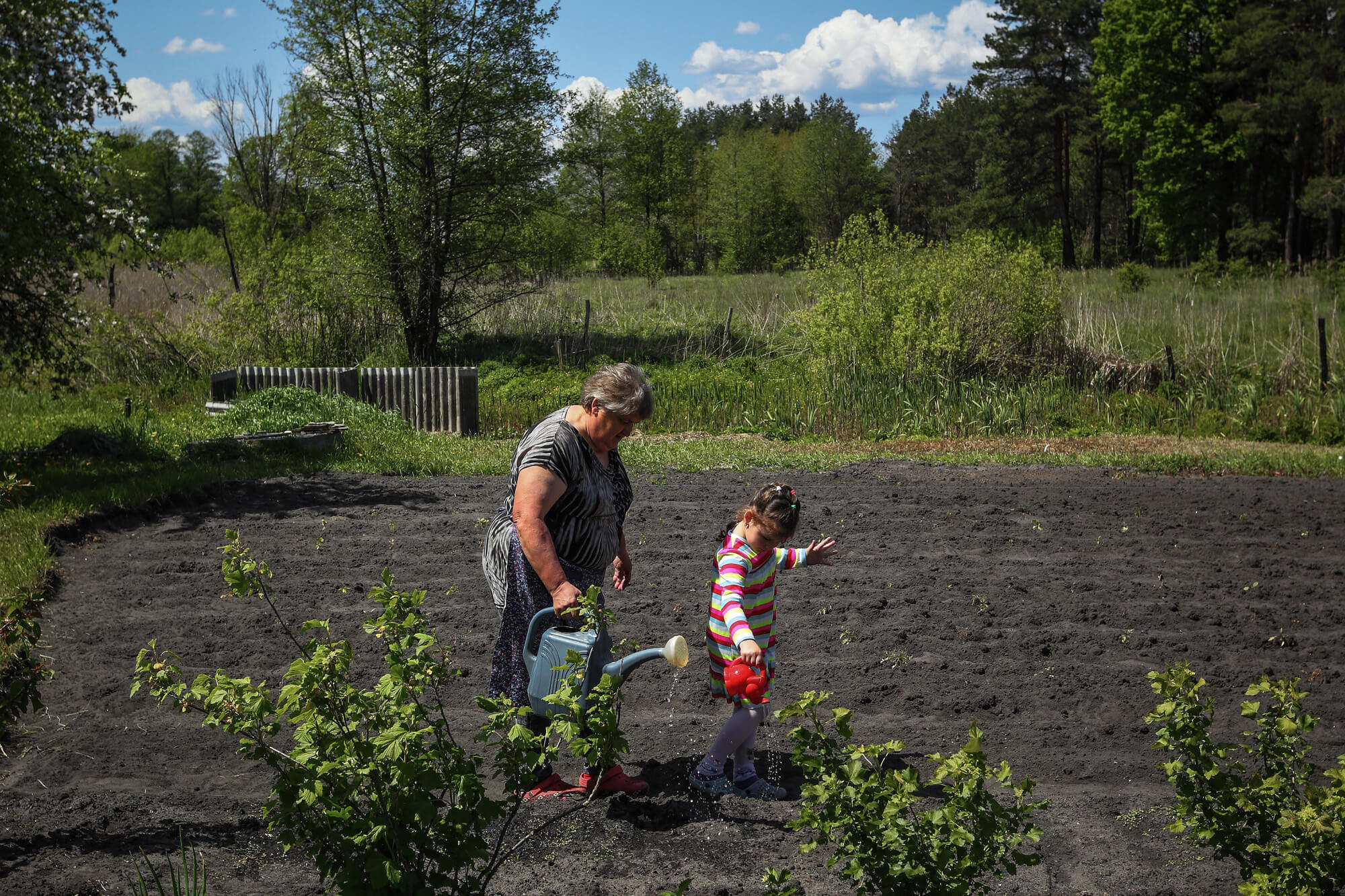
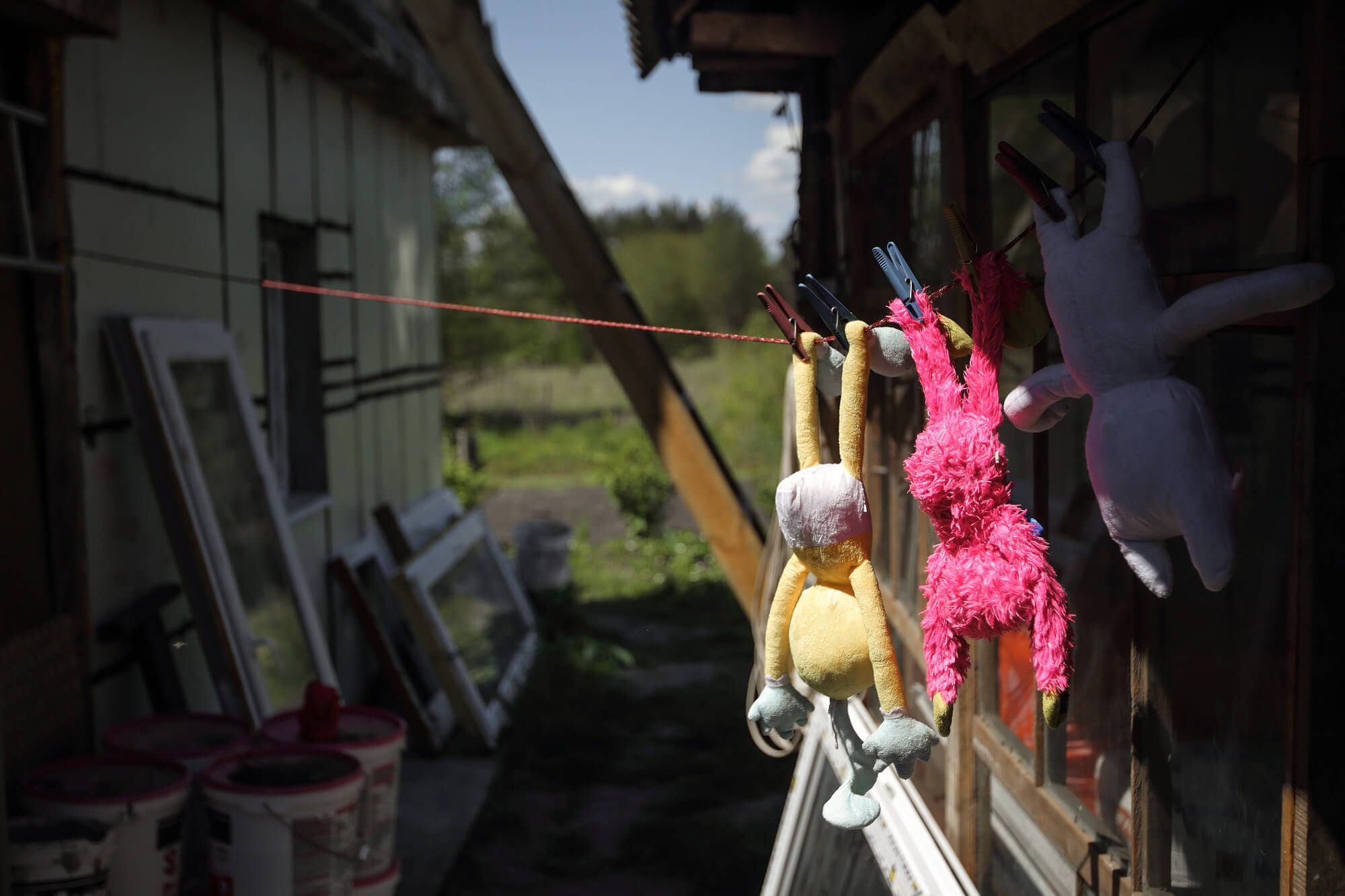
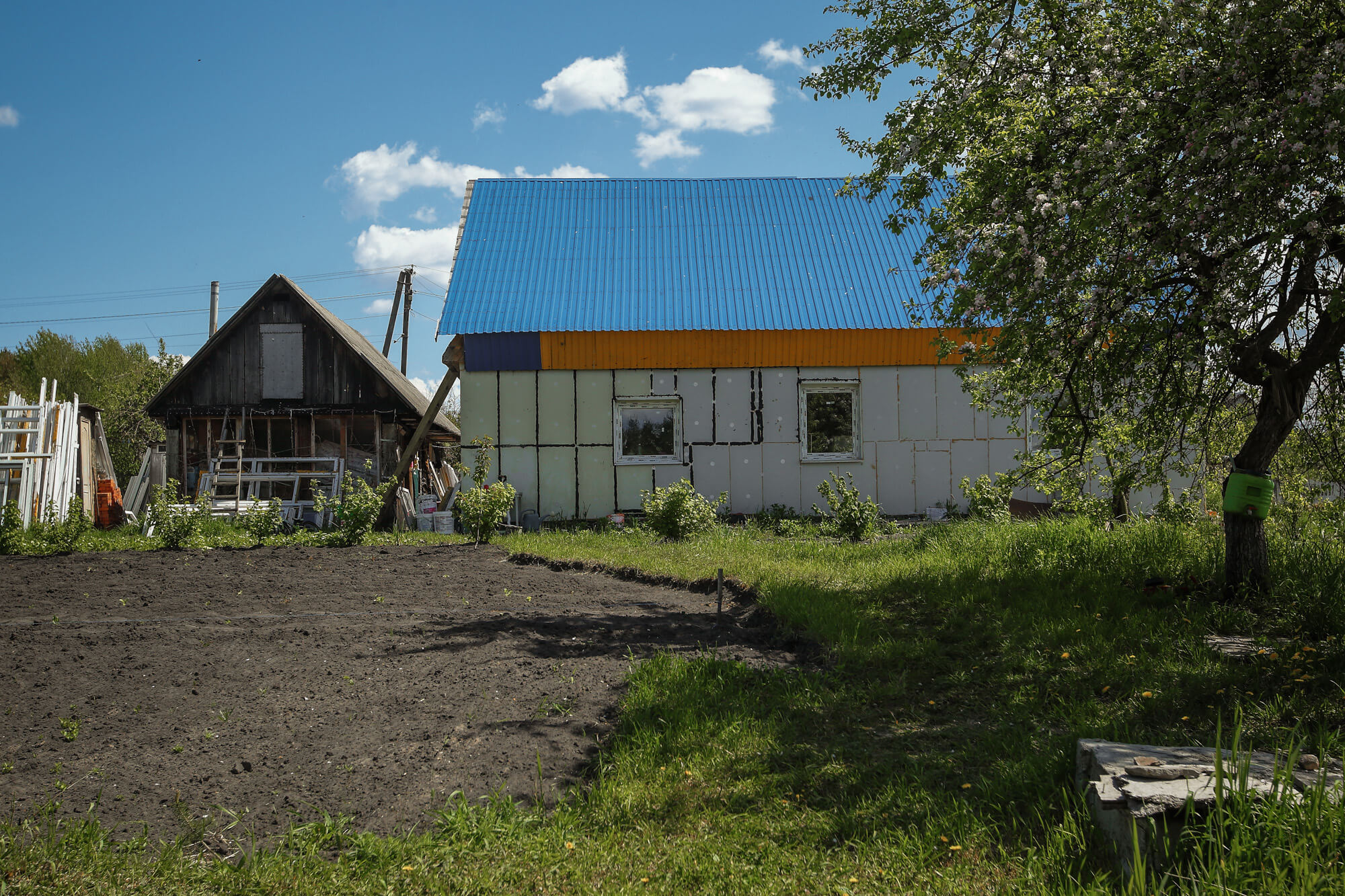
Victoria vividly remembers the start of the occupation. People with guns entered the businesswhere she worked as a cashier, pointed weapons at the employees, and ordered everyone to leave. Andrii used to be a plumber in the former police department. He could hear through the wall how the Russians tortured Ukrainians. Hope for liberation diminished, fear grew. «One day he returned home, — saying, — you won’t give birth in the DPR, Donetsk People’s Republic». Victoria was nine months pregnant. Luckily, they managed to leave before giving birth. Their second daughter was born in Vorzel, Kyiv region.
Until last year, the family lived in Hostomel, but then the landlord asked them to vacate, and the family couldn’t find a place where they could live with their two young children. Someone they knew told them that a house was for sale in Zdvyzhivka, a nice village with a school and a kindergarten nearby. They used all their savings to pursue the dream of a new peaceful life.
The house had one room, a hallway, and a kitchen where the family of four and Andrii’s mother squeezed in.
«When we moved here, we only had water in the well. My husband built an extension and fixed the roof. He installed water when the Russians were already here — as planes were flying he was digging a canal for water. A neighbor advised us to write ‘children’ on the house, and we listened», — Victoria recalls.
She speaks quietly, barely audible over the sounds of tools and the noise of volunteers painting the walls in the future children’s room. Natalia told Victoria about the «BUR» program, and now volunteers are helping the family with house repairs.
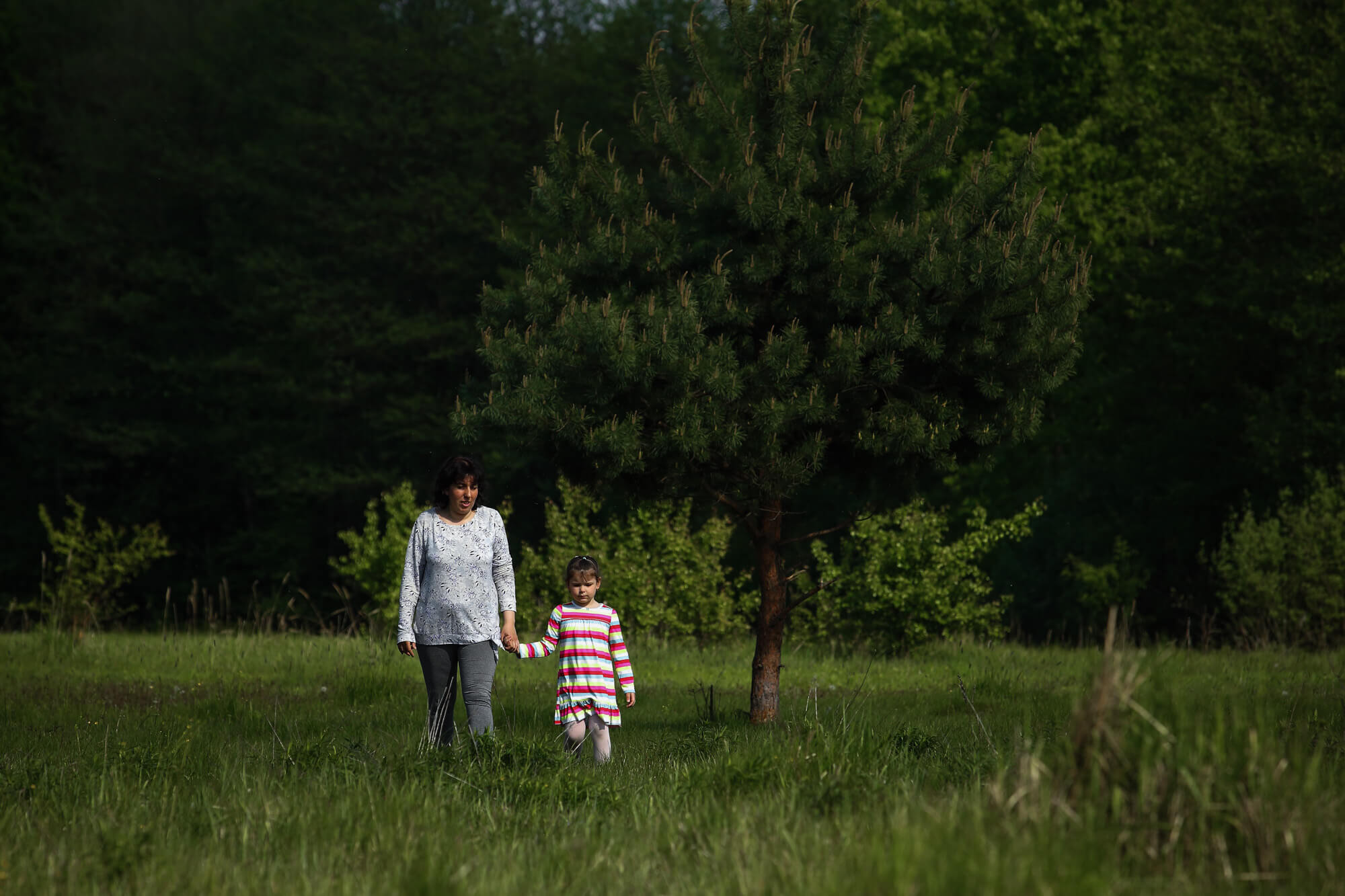
The corner of the large room is covered with drawings and cutouts from coloring books. «Both girls really want to have their own space ,” Victoria says, looking at the bright spot in the room, the drawings. And she adds, “This is our last stop. We won’t go anywhere from here».
During the war, the couple lost their jobs, and Andriy also lost his work record book, which burned down at a warehouse in Bucha, where he had risen to the position of deputy manager. As soon as the connection was restored in the village, they both found jobs in Bucha. Life, interrupted by the occupation, continued.
Unlike her husband, Victoria doesn’t have close relatives nearby. Her sister has been living in the United States for many years and doesn’t come to Ukraine even for short visits. Her mother died in Horlivka during the occupation. She couldn’t say her last goodbye to her father — he was buried by neighbors. She is waiting for the liberation of the city to visit her parents’ graves properly. But her home is now here.
Of course, the occupation affected the whole family, how could it not?. «The older daughter, Dasha, became distant . She’s somewhere inside herself now, you don’t see or hear her. We constantly told the children, ‘Don’t go outside — there are strange men, and scary tanks », says Victoria.
Today Dasha is 12. Thanks to her parents, she never had to attend a Russian school. Thanks to caring people, she feels needed — volunteers gave her a laptop for studying. In the evening, she will go to Bucha with her parents to eat sushi and be able to stroll till the curfew without hiding from strangers.
Zdvyzhivka Forest is still full of Russian trenches and wrecked equipment. children play war there despite their parents’ prohibitions. But in the same forest, now without hiding, people (mostly older individuals) weave camouflage nets every week and send them to Ukrainian soldiers, thanking them for the liberation. Now they increasingly venture out from behind their fences to restore the Zdvyzhivka to what it used to be as quickly as possible.
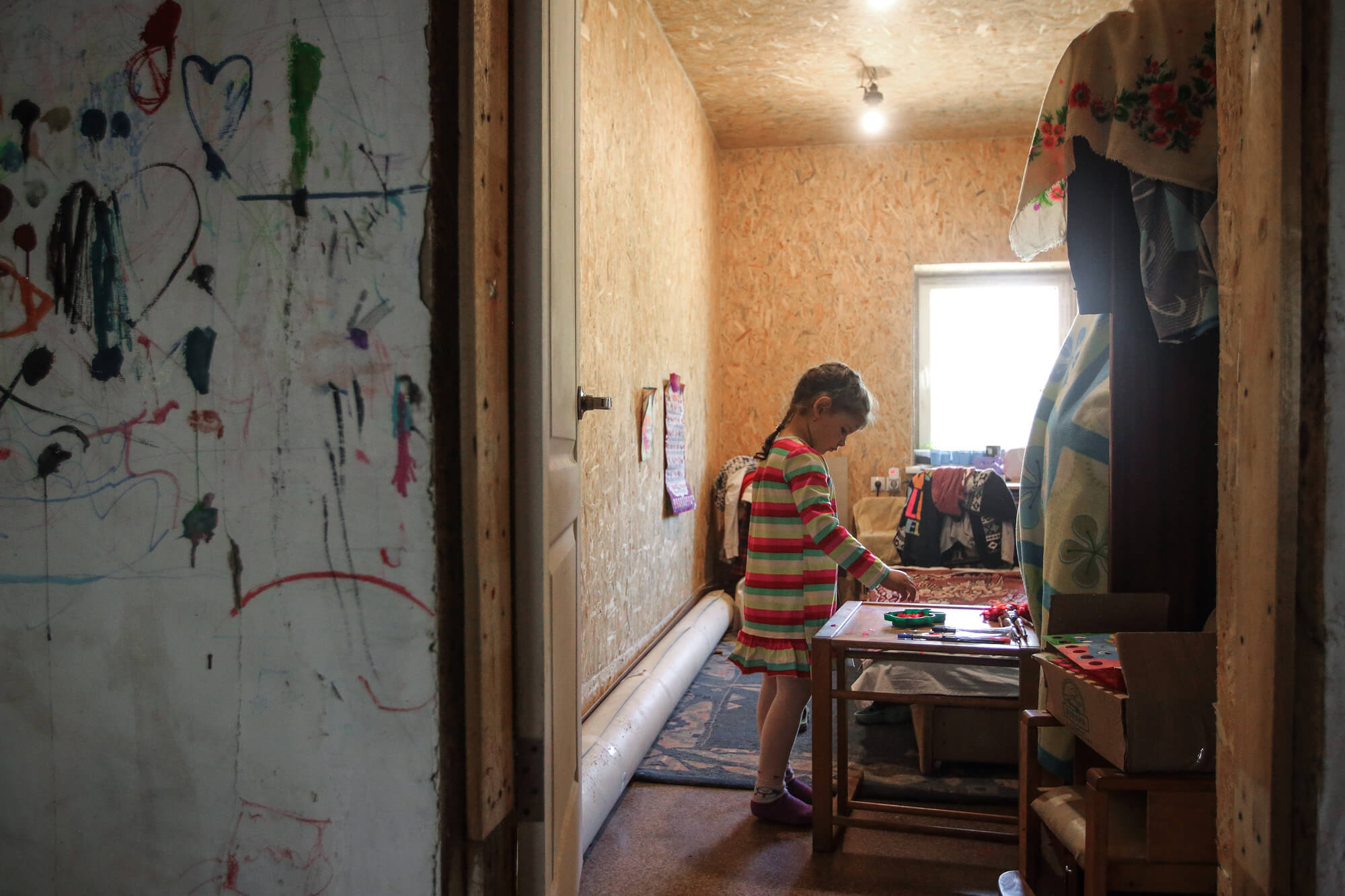
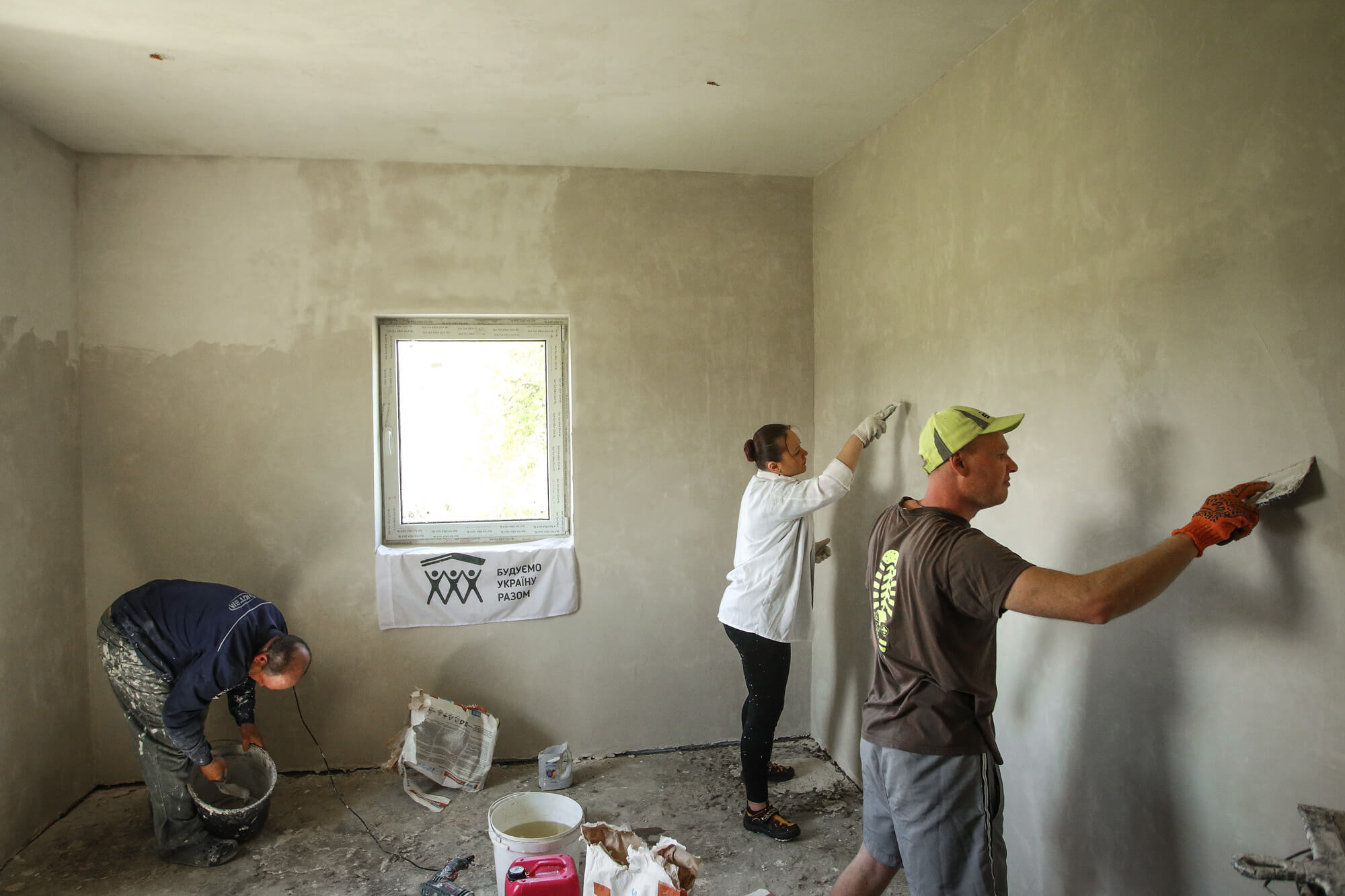
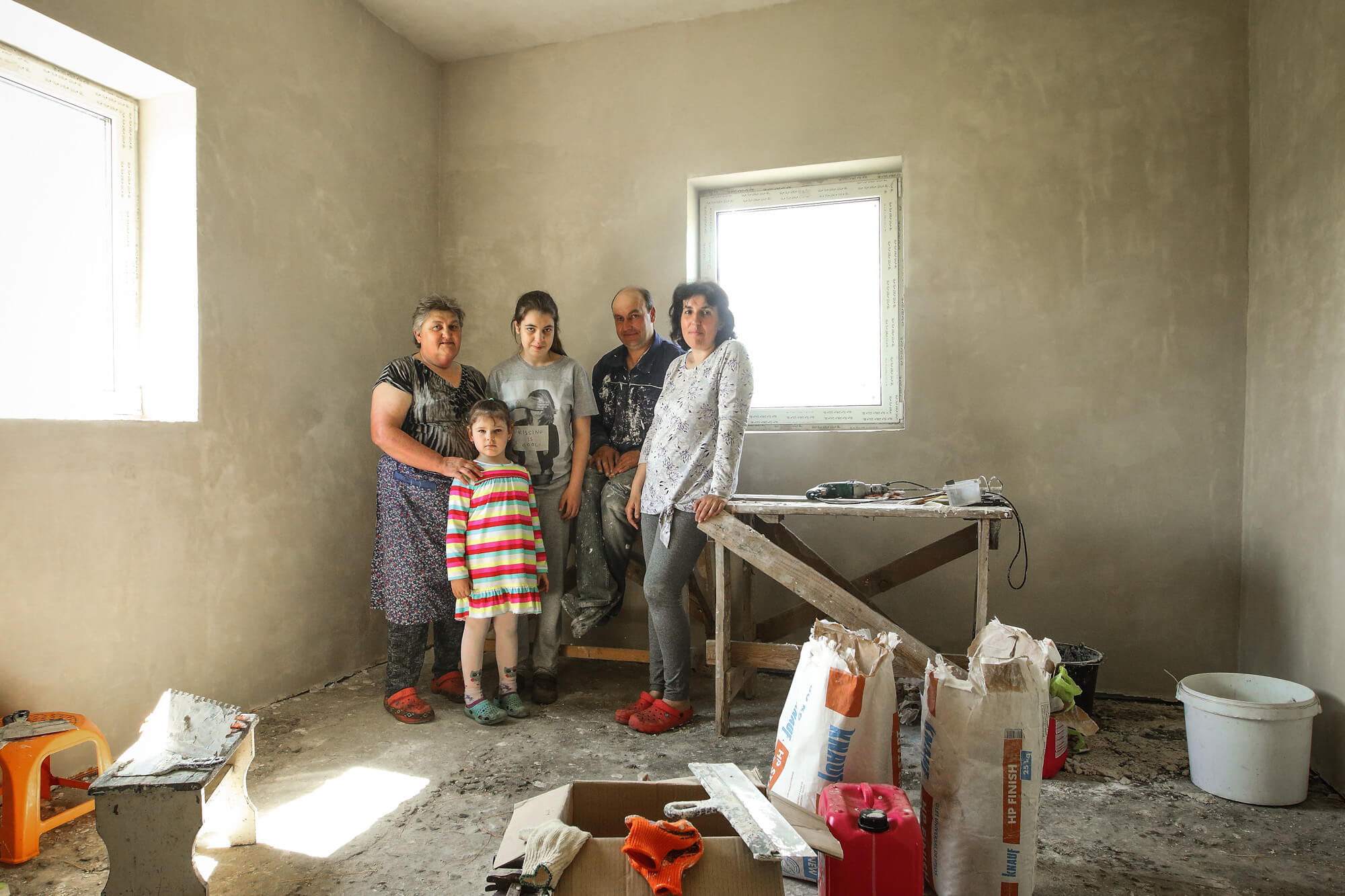
During one of the shellings, two electric poles were knocked down in the village. The villagers didn’t know it required a thorough professional repair , so they tried to take matters into their own hands. Priest Vasyl went from house to house, gathering men who were not afraid of this work. He assembled fifty people, including engineers and electricians. For three days, Anna made sandwiches and tea for them while they tried to fix what seemed impossible to restore on their own.
And miracles, of course, did not happen. But when experts arrived in the village , the joint efforts turned out to be not in vain afterall, Zdvyzhivka got its electricity back two weeks earlier than other villages.
***
The special project «Healed Lands» is being implemented within the framework of the project «De-occupied: stories of the liberated territories» with the support of the Heinrich Böll Foundation, Bureau Kyiv-Ukraine. The project aims to show that Ukrainians do not give up, do not wait for external help, but rather restore life in their local communities or in their homes. Although the war continues.
With this text, we tell the story of rebuilding life in those Ukrainian territories that were temporarily occupied or surrounded by the Russian army. We publish stories based on the human experience of war, about those who not only find the strength to continue living but also inspire others with that strength. Those who showcases examples, inspires, or through their initiatives helps villages, towns, or cities recover from the war.
Have read to the end! What's next?
Next is a small request.
Building media in Ukraine is not an easy task. It requires special experience, knowledge and special resources. Literary reportage is also one of the most expensive genres of journalism. That's why we need your support.
We have no investors or "friendly politicians" - we’ve always been independent. The only dependence we would like to have is dependence on educated and caring readers. We invite you to support us on Patreon, so we could create more valuable things with your help.
Reports130
More






